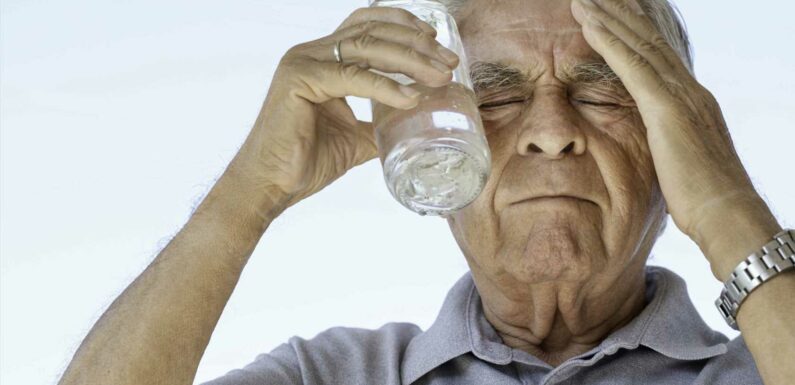
EUROPE is in the grips of a deadly heatwave.
Holidaymakers heading across the channel are facing heat and health warnings as temperatures hit highs of 48C in Sardinia and Sicily, the World Meteorological Organization reported.
Foreign Office officials have warned Brits heading abroad to take care due to the possible health risks posed by "extreme" heat.
The extreme weather caused the death of a 44-year-old man who collapsed while painting a zebra crossing in Milan at 40C.
Italy's health minister Orazio Schillaci has since urged people to swerve tourist hotspots for their own safety as the deadly heat continues.
Yet few people really understand how heat impacts the human body.
Read more on the heatwave
The ‘silent’ symptom of deadly heat stroke you might miss – and 5 other signs
Urgent warning over risk of heart attacks across European holiday hotspots
Probably because it's too disgusting to think about.
Simply put, the human body is not built for temperatures in the high 40s.
According to the NHS, our bodies strive to keep a core temperature of about 37C whether we're in the snow or a heatwave.
However, when external temperatures exceed that ideal level, it can become hard for the body to stop it's internal temperature climbing.
Most read in Health
Are you always late? Doctors say you might be suffering little-known condition
Woman shares the horrifying reason you must NEVER crack your own neck
First walkout by senior doctors on £128k to 'bring NHS to a standstill'
Cops seize Ferrari and £50,000 in cash during raid on 'botox cowboys'
In a video, posted in TikTok, NHS Dr Azmain Chowdhury explained how exactly the body tries to cool itself down – and what happens when it fails.
He said: "When your body gets hotter your brains temperature detected, the hypothalamus, tells your body how to respond.
"It tells your blood vessels open up to allow heat to escape."
But in doing this, your blood pressure drops so your heart is forced to work harder to pump blood around your body.
This can lead to dizziness, fainting, or falls if the heat-related lowering of your blood pressure happens too quickly.
Another way the body cools itself is through sweating, the doctor said.
"But excessive sweating leads to fluid and salt loss changing the delicate balance in your body which can damage your kidney," he added.
And if neither of those two functions work to cool the body down, you can begin to suffer from deadly heat stroke, according to the NHS.
The condition can affect anyone, but over 75, babies, people who have a serious or long-term illness are could be at greater risk.
Suffers will see their heart rate continue to increase, placing the organs under stress, while breathing may become rapid and shallow.
A red rash might emerge as blood rushes to the surface,temperature will remain very high and the body will be too dehydrated to produce any sweat.
If left untreated heatstroke can quickly damage your brain, heart, kidneys and muscles leading to death.
The 5 red flag signs
If you sit out in the sunshine for too long, you might experience something called “heat exhaustion”.
This is the body's natural response to overheating, excessive loss of water and salt, usually through excessive sweating.
When this happens you may experience headache, dizziness and confusion, feeling sick and cramps – which can be easily mistaken for heatstroke.
However for heat exhaustion, the NHS says your symptoms should clear within 30 minutes of cooling down.
Heatstroke, on the other hand, is more dangerous lasts for longer (but is thankfully, much less common).
There is cause for concern when you start to exhibit these five extreme symptoms, as they may be signs of heatstroke:
Read More on The Sun
I got my lips tattooed but it went wrong…trolls say I look like a Flappy Bird
Tesco shoppers rush to buy must-have that’s scanning for £19.50 instead of £70
- Feeling confused
- Becoming unresponsive or losing consciousness
- Having a fit or seizure
- Having a temperature above 40C
- Having rapid or irregular breathing
The NHS recommends that you call 999 if you exhibit these symptoms.
Source: Read Full Article








